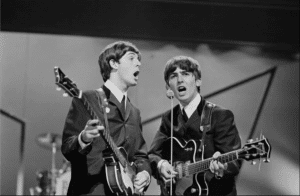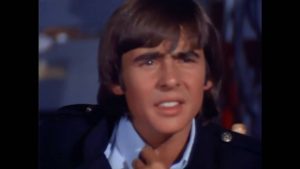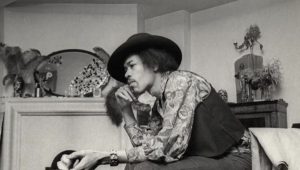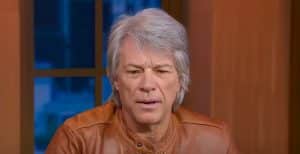Why Boston Had A Tragic Career

via Boston on MV / Youtube
The year was 1976. A band named Boston unleashed their self-titled debut album on the world, and the music scene was forever changed. The record wasn’t just good, it was a cultural force.
With its soaring vocals, arena-ready rock anthems, and innovative use of multi-tracking, Boston sold a mind-blowing 17 million copies. This wasn’t just commercial success; it was a coronation. Here was a band poised for rock and roll royalty.
But something went terribly wrong. Despite the meteoric rise, Boston’s reign was short-lived. Only one more studio album saw the light of day four years later, and then, almost as quickly as they arrived, Boston vanished from the music landscape.
This dramatic fall from grace leaves us with a lingering question: what caused a band with such undeniable talent and initial success to experience such a tragic career?
View this post on Instagram
The perfectionist behind Boston
Tom Scholz, the mastermind behind Boston, wasn’t just a musician, he was an engineer with a mind for innovation. After graduating from MIT, he landed a job at Polaroid. But music was his other passion.
He played with various Boston bands like Middle Earth and Mother’s Milk, hoping to catch a record label’s eye. Live shows weren’t enough, though, and demos recorded in local studios failed to impress.
Undeterred, Scholz built a 12-track recording studio in his basement. Here, he meticulously crafted his music, layering sounds and pushing the boundaries of recording technology. However, record labels remained uninterested. Finally, Scholz decided to collaborate with other local musicians. Guitarist Barry Goudreau introduced him to singer Brad Delp, and together they began shaping the songs that would define Boston’s sound.
Hits like “More Than A Feeling” and “Peace Of Mind” were born in this basement studio, with some clever name changes along the way. Even the hand claps on “More Than A Feeling” came from a personal touch – Scholz’s first wife!
From demos to bidding war (almost)
Despite the quality of the demos, a bidding war wasn’t in the cards for Boston. Most labels simply weren’t interested. However, a stroke of luck intervened in 1975.
A representative from ABC Records named Charlie McKenzie heard the demos while visiting a friend at RCA Records – a friend who turned out to be Paul Ahern (who would later become Boston’s manager). McKenzie and Ahern saw potential and convinced Scholz to let them shop the demos around.
Their efforts landed them at Epic Records, a subsidiary of CBS. Epic was intrigued but wanted to see a live performance before committing.
Tom Werman, a staff producer at Epic, described his initial reaction to the demos: “‘More Than A Feeling’ sounded nearly finished, and halfway through the next song, I shut it off. I couldn’t believe this music was available. We told them if the band could replicate this live, we’d sign them.”
Scholz’s basement hustle and the birth of Boston
Scholz faced a challenge: a record deal hinged on a live performance, but Boston wasn’t a real band yet. He enlisted Delp and some familiar faces from the Boston music scene to fill out the lineup. Their showcase, held in an Aerosmith warehouse, was a success. Epic Records was so impressed, they offered a staggering 10-album deal spanning six years – a standard contract for bands back then, though seemingly excessive in hindsight.
However, a snag emerged. Epic wanted the demos re-recorded in a studio with a seasoned producer. The label suggested John Boylan, but Scholz, ever the perfectionist, saw little point. He devised a plan with Boylan: instead of going to LA for a re-recording, Scholz would stay put and polish the demos in his basement, creating a more “studio-ready” version for Epic.
Meanwhile, the rest of the band would head to LA to work on new material, eventually crafting the song “Let Me Take You Home Tonight”. Scholz’s meticulous work on the demos fooled the label, and he even secured a co-producer credit in the bargain.
With a completed album and still lacking a band name, it fell to the album’s producer and engineer to suggest “Boston”. The self-titled debut, released in the summer of 1976, became a phenomenon. “More Than A Feeling”, the opening track and single, fueled the record’s massive success, becoming the fastest-selling album of the 70s. The success was so overwhelming, it allowed Scholz to finally leave his day job at Polaroid.
Pressure, touring, and the seeds of discord
The band’s meteoric rise meant hitting the road. Boston opened for established acts like Foghat, Black Sabbath, and Blue Öyster Cult. While they enjoyed touring, the pressure mounted. The record label craved a new album, but Scholz, the perfectionist, felt it was too early. The desire for creative freedom clashed with the record company’s desire for a quick return on investment.
This pressure manifested in Don’t Look Back, Boston’s 1978 sophomore effort. Despite reaching number one and selling over 7 million copies, Scholz felt it was rushed. He longed for the time to create without the label breathing down his neck, but the music business rarely operates on such terms.
The subsequent tour for Don’t Look Back was grueling, lasting over two years. In an interview, Scholz described it as “horrible”. The constant touring left him drained and questioning his desire to continue.
Delp shared these feelings. Scholz considered walking away from music entirely, even contemplating a return to engineering. The experience left him disillusioned with the industry and the exploitation he felt it fostered.
The downward spiral of legal battles and loss
Despite the toll touring had taken, Scholz decided to stay in music and focus on Boston’s third album. However, this period was marred by legal battles and personal conflicts. He discovered his manager, Paul Ahern, held a songwriting credit on his music due to a contract loophole. The ensuing disagreement led to Scholz firing Ahern, who retaliated with a lawsuit.
Disillusioned by the music industry, Scholz disbanded the band, allowing members like Goudreau to pursue solo careers. Goudreau’s solo album, featuring future Boston vocalist Fran Cosmo, received critical praise but failed commercially.
Tensions escalated further when Epic Records promoted Goudreau’s album with a tagline referencing “the sound of this guitar”, seemingly diminishing Scholz’s contribution. While some reports claim Scholz complained to the label, he maintains he never wanted them to pull support.
Meanwhile, the legal battles raged on. Epic Records, pressured for a new album, sued Scholz for breach of contract. Scholz countersued over unpaid royalties. Both lawsuits dragged on for years, leaving Scholz emotionally drained. Though he ultimately prevailed in both cases, the experience left a deep scar.
Continued struggles and the tragic death of Brad Delp
The 1990s brought a shakeup to Boston’s lineup. Delp unexpectedly departed to join guitarist Goudreau’s new project. Undeterred, Scholz recruited Cosmo, formerly of Iron Horse, to take on vocal duties. Their 1994 album, Walk On, blended elements of their previous work, achieving platinum status with the hit single “I Need Your Love”, but failing to reach the heights of their earlier releases.
Boston’s sound continued to morph with each release. Scholz, wary of the impact of the band name on sales, took a gamble with their 2002 album. Titled Corporate America but released under the pseudonym “Downer’s Revenge” on an independent label, the album marked a significant shift in marketing strategy.
However, the eight-year gap between albums and the unfamiliar name contributed to the album’s failure to crack the top 40. Disappointed with the promotion, Scholz sued the record label, Artemis Records.
A dark cloud fell over the band in 2007 with the tragic suicide of vocalist Brad Delp. The aftermath was marred by accusations and lawsuits. Some pointed the finger at Scholz, claiming he exerted too much control and neglected the well-being of his bandmates. Scholz defended his management style, stating Delp always had the freedom to leave.
A legacy defined by both triumph and turmoil
Despite the legal battles and lineup changes, Boston persevered. In 2013, they released Life, Love & Hope, featuring vocals from the late Brad Delp alongside other singers. Notably, the album’s recordings originated over a decade earlier.
Scholz has continued to tour under the Boston banner, and the band faced another hurdle in 2018 when a fire at Universal Music reportedly destroyed some of their master recordings.
Boston’s story is a tapestry woven with both meteoric success and internal strife. Scholz’s meticulous approach and need for creative control often clashed with the music industry’s desire for quick results and the needs of his bandmates. Yet, through it all, Boston’s music continues to resonate with fans, leaving an undeniable mark on rock and roll history.











